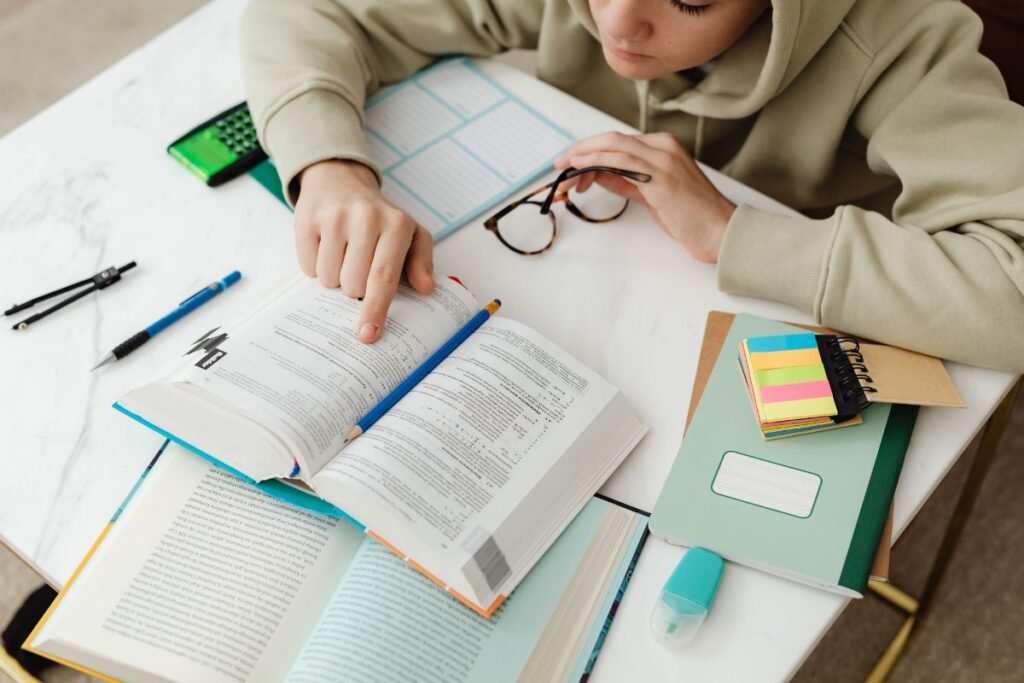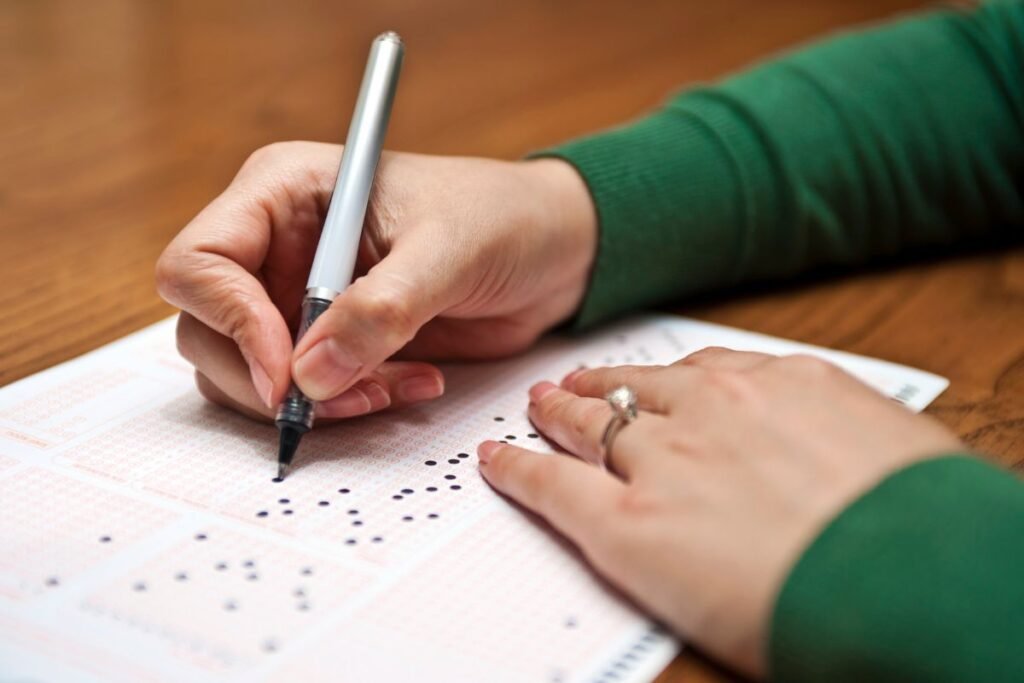Being a great student doesn’t mean you have to spend hours of your time studying. The key is to learn how you learn effectively. Good students develop consistent study habits to make their grades go up. This post shares essential study tips to help you become a successful student, impress everyone in your class and convince the college admission officers that you are the best candidate for admission.
Why are studying habits important?
Even the best students experience bad days. Sometimes, you might feel distracted by other things going on in your life. Or the study material is not exactly what you might call enjoyable.
Dealing with low motivation and productivity can be challenging and make you wonder whether you will meet your expectations.
Simple things such as finding the perfect study environment, getting enough rest, and creating a schedule can help you master your assignments and meet your academic goals.
1. Find the proper study environment
One of the first strategies is to consider eliminating background noise and distractions. Think of a place where you can entirely focus on your studying.
A quiet corner in your home, such as your bedroom, an attic, a home office, or a space where no one can distract you, is the perfect option. Make it clear that this is your study space and you don’t want to be distracted. Setting a dedicated study space will help you put yourself into a studying mood faster.
If you don’t have this option, you can always try and find quiet places in your town, such as a public library or a quiet coffee shop.

2. Schedule your study time
Students trying to cram studying before practice tests need to do themselves a favor. Pouring a cup of coffee and staying late for intensive study sessions won’t get you good grades consistently. Instead, do your best to study steadily.
Successful students like to create their own study schedules to navigate through college life easier. Since teachers and professors usually announce exam dates upfront, you can easily create a regular study routine to make sure you are always prepared.
Try to study every day at the same time, according to your schedule, to turn your study time into a habit. When you study at home, let everyone know about your study schedule and that you aren’t available at that time for other activities. Outside of the given timeframe, you are open to communication.
Setting realistic goals for your study sessions is very useful. For example, plan to finish one chapter per study session. You don’t have to meet these goals strictly, but they can serve as a guideline.
3. Study together with fellow students
Some students perform better when studying with friends. This strategy is excellent, but only when your friends are really into learning, so you won’t find yourselves easily distracted by social media or the latest gossip.
Discuss your studying strategy before the study session and make sure everyone is on the same page. Reading material and writing outlines are often practical study technique options for study groups.
Speak with a college coach today!
Speak with an expert college coach and learn if working with one is right for your academic journey. Free 15-minute consultation, no cost, no obligations.
4. Planned breaks
No need to cram everything in one long, uninterrupted session. A 15- to 20-minute break every 50 minutes of studying is beneficial for information retention. Breaks boost your energy and improve focus, leading to enhanced productivity.
Don’t spend your time scrolling through social media or chatting with your friends, though. Choose activities that relax the mind and increase energy. Cleaning your room, taking a walk, munching a healthy snack, or listening to music are great options.
5. Avoid procrastination
Some students might develop brilliant study plans. However, brilliant study plans mean nothing if you don’t stick to them. We get it; watching your favorite show or hanging with your friends is more interesting and fun than studying. But successful students don’t procrastinate.
Postponing study sessions for extended periods of time allows the material to build up and makes you go over it in a hurry. The rush puts stress on you, making it more difficult to retain information.

6. Difficult subjects go first
Many students tend to put off problematic subjects and approach them at the end of their study session. We completely understand this, as many students often want to start with the simplest assignments or topics they love. But leaving the challenging subjects last, when you are tired, is a huge mistake.
Instead, tackle the least favorite assignment at the beginning of your study session, when you feel most energized. When your energy levels drop, you can move to the tasks that require less focus.
7. Take a practice exam
Taking practice tests before the big day is highly beneficial. Being familiar with the test format helps studentsreduce exam anxiety and prepare mentally. But also practicing aidsin information retention.
Students can search for test examples online and use them to practice. Taking a quiz with your friends or having a fun Q&A session with them is another great alternative to test your knowledge and prepare for the big day.

8. Practice good sleep habits
Studies have confirmed that lack of sleep affects your performance negatively. When your brain doesn’t get enough rest, your cognitive function and focus drop. Therefore, make sure to get at least 8 hours of sleep for improved performance.
In addition, you can do other things to support your mental health. Exercise is a beneficial activity since it boosts energy levels and improves focus. Avoid trying to boost your performance artificially by ingesting large amounts of caffeinated drinks or “magical” pills that will be damaging to your health in the long run.
9. Fuel up with healthy snacks
Munching on snacks between studying sessions provides you with the energy to continue learning. But don’t grab all the junk food in your pantry. Instead, go for mindful food choices that support your cognitive functions.
Keep fruits, veggies, nuts, and plant-based protein handy to boost your performance.

10. Find a study strategy that works for you
Every student is different. A strategy that works for your friend won’t necessarily work for you, even if you’re learning the same subject. Find your own learning style!
When reading the studying material seems insufficient, you can try other options. Some students perform better when they rewrite the notes. Others find it easier to read and paraphrase paragraphs with their own words.
Outlining the study material is another helpful strategy. Some like to go a step further and create a visual representation of the outline. Find the way that works best for you and stick to it.
Also, don’t forget to prepare everything you need ahead. Nothing is more frustrating than missing materials and not clearly defined outlines. Gather the essentials and create a study station that motivates you to do the work.





